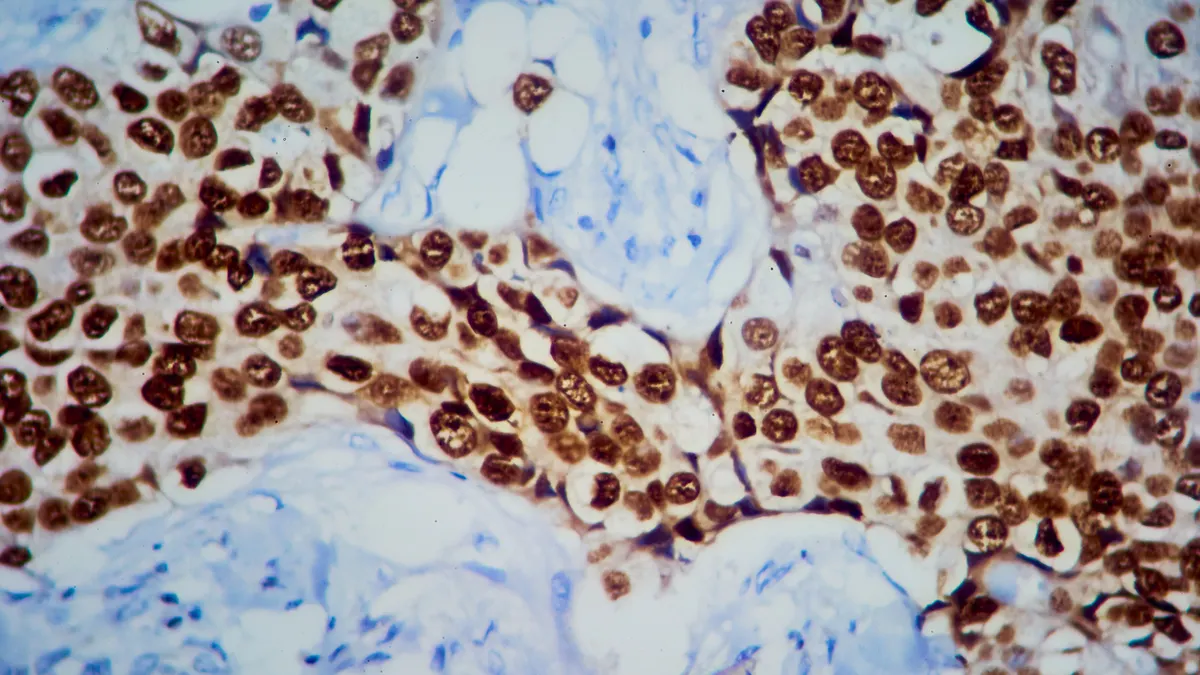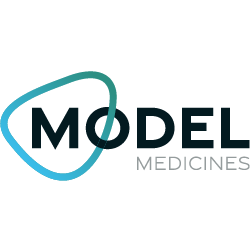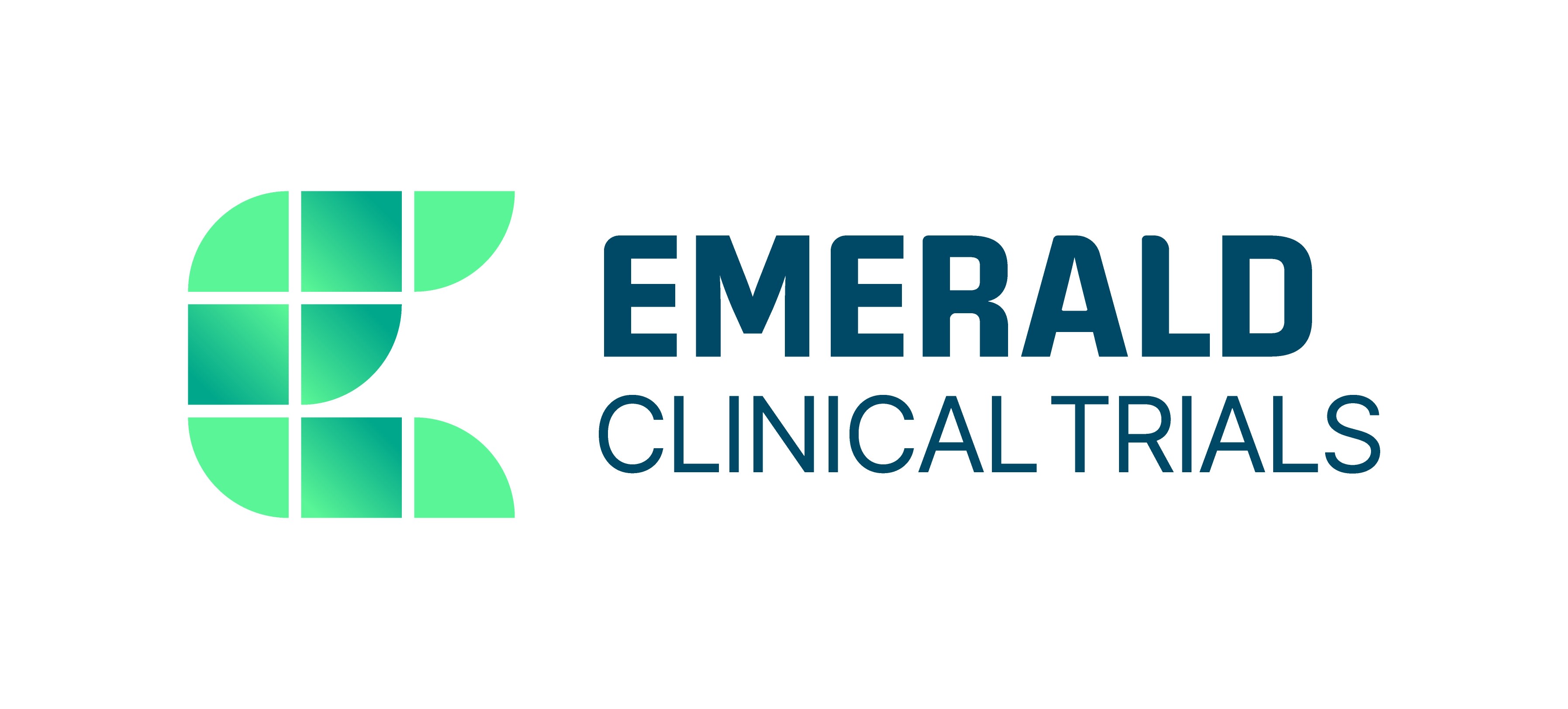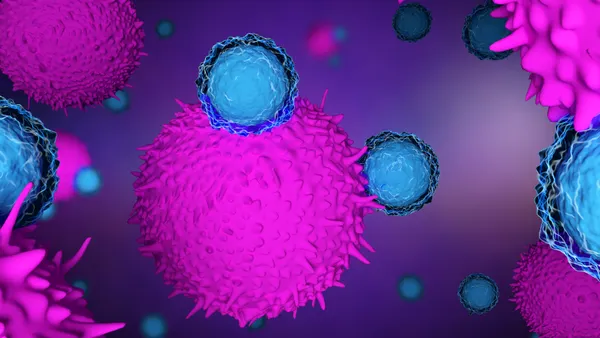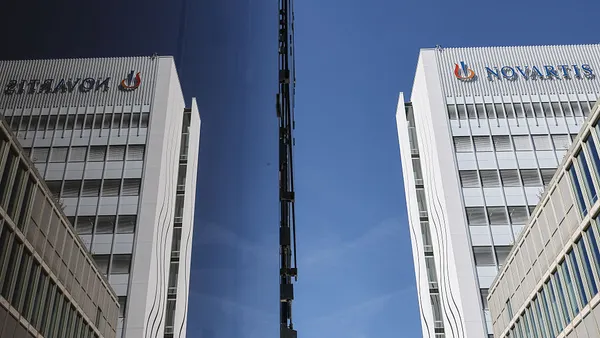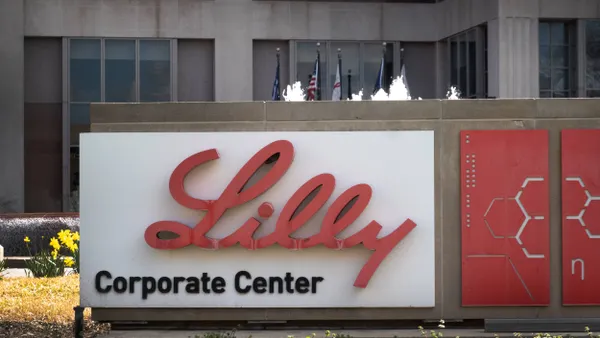Biotechnology firm Celcuity said Monday a late-stage trial testing its experimental breast cancer therapy in combination with other drugs succeeded, positioning the Minneapolis-based company to submit an approval application to the Food and Drug Administration later this year.
Treatment involving the biotech’s drug, called gedatolisib, significantly reduced the risk of disease progression or death in patients with a certain kind of advanced breast tumor that continued to grow despite initial therapy. Researchers observed this progression-free survival benefit in both patients given a “doublet” drug combination including gedatolisib and a “triplet” combination.
In a statement, Celcuity said the trial achieved “several new milestones” in testing of treatments for breast cancer that’s positive for hormone receptors but negative for another protein called HER2. Co-principal investigator Sara Hurvitz, head of the hematology and oncology division at the University of Washington’s Department of Medicine, called the results “potentially practice-changing” in the company’s statement.
With results in hand, Celcuity plans to file in the fourth quarter for FDA approval. Shares in the company tripled in early trading Monday, before settling back to trade higher by almost 200%. The share price gain inflated Celcuity’s market value to about $1.5 billion.
Celcuity’s study enrolled patients with HR+, HER2- tumors that tested negative for common mutations in a gene called PI3KCA. In one group, the company paired gedatolisib with Pfizer’s Ibrance and AstraZeneca’s Faslodex, which is available as generic fulvestrant. Treatment with the triplet reduced the risk of disease progression by 76% compared to fulvestrant alone. Progression-free survival reached a median of 9.3 months in the triplet group versus just 2 months for those on fulvestrant.
Given with just fulvestrant, gedatolisib treatment reduced progression by 67%, leading to a median progression-free survival of 7.4 months.
The company said patient discontinuation rates due to treatment-related adverse events was lower in this study than in Phase 3 trials for approved drug combinations for this patient population.
Full data from the trial will be presented at an upcoming medical conference later this year.
Andrew Berens, an analyst at Leerink Partners, wrote in a client note Monday that the data “are likely clinically meaningful across multiple subgroups” and provide rationale to use Celcuity’s drug as a second-line breast cancer treatment.
“The 7.3 and 5.4-months incremental improvement in median PFS relative to fulvestrant for the gedatolisib regimens are potentially paradigm-shifting results,” claimed Igor Gorbatchevsky, chief medical officer of Celcuity, in a statement.
Other approved drug combinations in the second-line setting are supported by data showing lower median progression-free survival, of about two to four months, compared to the doublet and triplet regimens using gedatolisib.
Celcuity expects to have data for gedatolisib in breast cancer patients with PIK3CA mutations by the end of this year.



